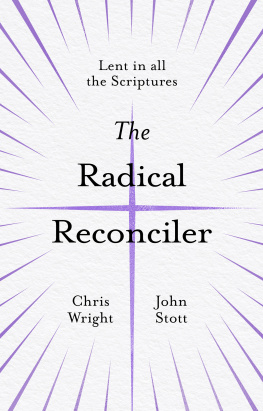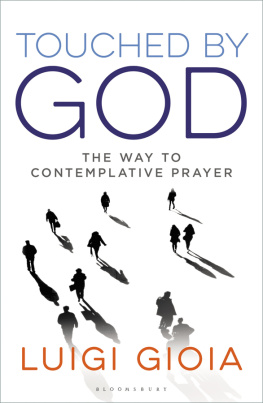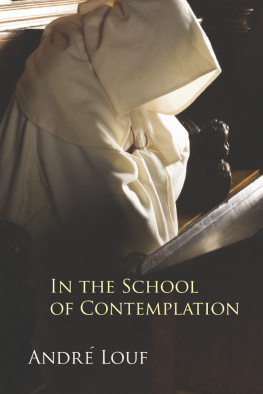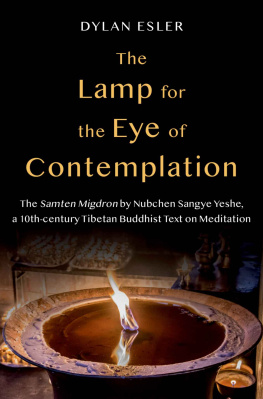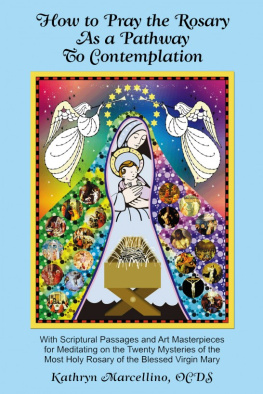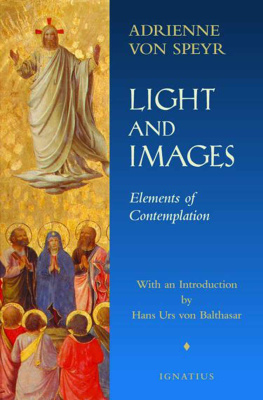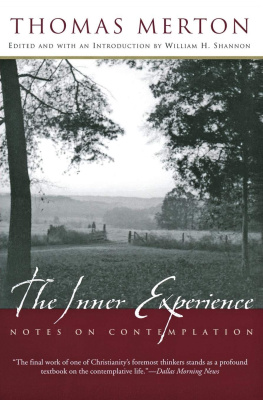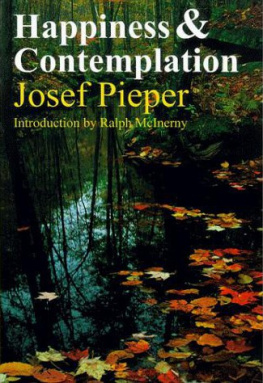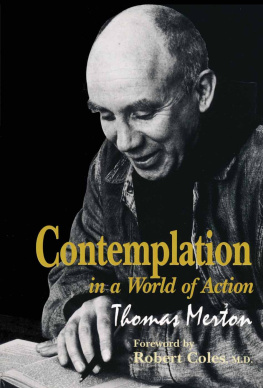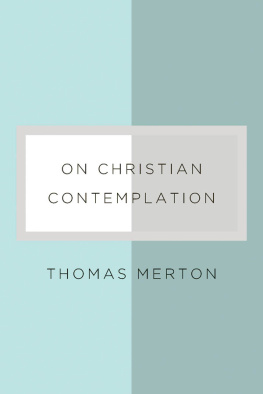SURPRISED BY GOD
How and Why What We Think about the Divine Matters
Chris E. W. Green
SURPRISED BY GOD
How and Why What We Think about the Divine Matters
Copyright 2018 Chris E. W. Green. All rights reserved. Except for brief quotations in critical publications or reviews, no part of this book may be reproduced in any manner without prior written permission from the publisher. Write: Permissions, Wipf and Stock Publishers, W. th Ave., Suite , Eugene, OR 97401 .
Cascade Books
An Imprint of Wipf and Stock Publishers
W. th Ave., Suite
Eugene, OR 97401
www.wipfandstock.com
paperback isbn: 978-1-5326-3565-6
hardcover isbn: 978-1-5326-3567-0
ebook isbn: 978-1-5326-3566-3
Cataloguing-in-Publication data:
Names: Green, Chris E. W., author.
Title: Surprised by God : how and why what we think about the divine matters / Chris E. W. Green.
Description: Eugene, OR: Cascade Books, 2018 | Includes bibliographical references.
Identifiers: isbn 978-1-5326-3565-6 ( paperback ) | isbn 978-1-5326-3567-0 ( hardcover ) | isbn 978-1-5326-3566-3 ( ebook )
Subjects: LCSH: God (Christianity) | Contemplation | Theology, Practical | Spiritual lifeChristianity
Classification: BT102 G72 2018 ( paperback ) | BT102 ( ebook )
The Banjo Lesson by Henry Ossawa ( 1893 ) (p. ) and The Vulture and the Little Girl by Kevin Carter ( 1993 ) (p. ) are in the public domain.
Christ and the Breadlines by Fritz Eichenberg ( 1953 ) (p. ).
Christ Sending Forth the Disciples by David Jones ( 1924 ) (p. ) permission given by the Trustees of the David Jones Estate.
The Christ of the Breadlines by Franz Eichenberg ( 1955 ) (p. ) copyright: Estate of Fritz Eichenberg/Licensed by VAGA, New York, NY.
Manufactured in the U.S.A. 07/31/18
Table of Contents
Preface
I had a very good reason for writing this book: my wife Julie told me to do it. Of course, even with her encouragement, the work proved difficultand not only because of the normal difficulties of writing and editing. There are always troubles sufficient for every season. So, as I was writing, my maternal grandfather and grandmother, with whom I have always been close, passed away. And I struggled with a series of illnesses. Through it all, however, the effort has been if nothing else an opening of myself to healing. It has been good for me to think and pray through these words; perhaps that is why Julie pressed me to write it.
Saying it has been good for me to write this book is another way of saying that God has surprised me, again and again. I was raised to think of God in specific terms and to expect God to acts in particular ways. Now, most if not all of those terms and ways are lost to me. But only because God always proves to be more than those concepts and expectations can handle. Even if I am not always pleased to find this happening to me, I am happy that God is beyond all I ask or think.
Finally, I need to give thanks to those who helped make this writing possible. Thanks, first, to Julie and my children: Zo, Clive, and Emery. They were not only patient but also relentlessly encouraging in making time for me to write and praying for me to do it well. Special thanks too for all the friends who read and responded to early drafts of these chapters: Hannah Moore, Dusty Counts, Ed Gungor, Mark Aarstad, and Adam Palmer. Without their readiness to take time to read and respond to my work, I would have had a very difficult time discerning what I needed to change or leave alone, what I should add or take away. Their friendship during this time has been a grace, and I am deeply grateful for it.
Chapter One
What to Do When the World Is on Fire
There is no fear in love.
John :
We only live, only suspire Consumed by either fire or fire.
T. S. Eliot
C hristians are called to live Christs life in this world, embodying the fullness of his love. And that means were called to live fearlessly. Now, we can all find much to be afraid of; at least we could if we lived by sight and not by faith. What Teresa of Avila said of her own age is true of ours (and all other ages) as well: the world is on fire; God seems to have so few friends and so many enemies. But fear is not a Christian affection. As St John reveals, the love of God has no fear in it, and deep-seated fears suffocate our ability to live lovingly with our neighbors ( John 4:18 ). The fear of judgment, in particular, keeps us from being gracefully present to those most in need. Somehow, then, we must be delivered into fearlessness by the love of God.
At birth, we are hurled into trouble. There are evils sufficient for every day and terrors sufficient for every age. We know fear from the earliest beginnings of our lives, long before we are capable of gratitude or humility, wonder or awe. In the words of Job, mortals, born of woman, are of few days and full of trouble. So how can we possibly live fearlessly? Given the state of things in this world, doesnt even the desire to live without fear mean we are either naively selfish, concerned only with our own safety and comfort, or foolishly selfless, ready to put ourselves and our neighbors through unnecessary, meaningless suffering?
We have to find a way to move toward fearlessnesswithout deceiving ourselves. But how? We have to allow ourselves to be shown a reality truer than our experiences. Like Teresa, we have to look away from the world to God for the worlds sake. In times of crisis, we need to turn aside to God as Moses did, averting our gaze from all illusions of mastery and control, as well as from all specters of futility and meaninglessness, fixing our attention on the God revealed in the gospel. As Maximus Confessor reminds us, human life is lived in the shadow of death; only if we know the God who lives with us can we rightly pass through the valley of the shadow of death without dread of the evils. Fear is a way of apprehending reality, a way of receiving the world, and only by looking to God instead of the world can we be freed from it. To that end, we have to learn contemplation.
***
We are already familiar with God. At least many of us are day in and day out saturated with Christian images and sounds. We easily recognize descriptions of the divine nature (God is one, holy, good, omniscient, omnipotent, omnipresent). We are sure we know how to call on God, and we are quick to profess our confidence in him and desire for him. But if we want really to be freed to live the lives were called to live, lives authentically devoted to doing justice, loving mercy, and walking humbly before God, we have to penetrate the veil of that familiarity, pressing toward a transfiguring vision of God as he is revealed to us. It is not enough to know the divine names or to have a felt sense of the divine presence. We need to graspor, better, be grasped bya vision of the divine nature and character. We have to come to know as fully as possible with life-determining force what God is really like.
But how is it possible for us, as the finite, broken creatures we are, to know what God is really like? Even our own wisdom is incomprehensible to us; how much more Gods wisdom? Thomas Aquinas can help us here. In this life, he insists, we cannot know what God in himself is like, not even by the grace of faith. Until our transformation with all things at the end of history, there remains between God and us such an absolute difference that we simply are not capable of knowing God as he essentially is. But Thomas is quick to add that this does not mean God cannot be known now in any sense. God by nature is supremely knowable, and because he is good, he desires to be known by creatures in ways fitted to the reality purposed for us. In fact, it is precisely the mode of our knowledge of God that makes us what we are. As we are being made capable of knowing who and what he is, he is transforming who and what we are so that we are brought into the fullness of the purpose given to us from the foundation of all things.


